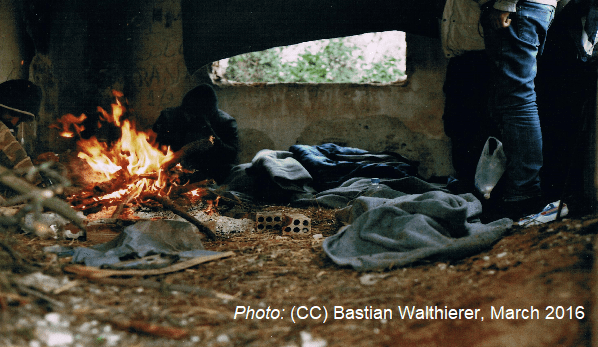A Bahrain national has been extradited from Serbia, despite interim measures issued by the European Court of Human Rights (ECtHR) prohibiting his removal given the risk of refoulement. Despite ongoing documentation of pushbacks and border violence, Hungarian police say they reject “unsubstantiated allegations” of abuse of migrants. As Hungary’s election period looms, the country’s nationalist leader is making increasingly brazen and baseless claims about migrants.
On 21 January, the ECtHR issued interim measures requiring Serbia to refrain from extraditing a Bahrain national until the Court could examine the “possible risks of torture” he would face. The man, who had been held in pre-trial detention since November 2021, had expressed his desire to seek asylum to Serbian authorities, on the basis that he was fleeing political persecution and torture. Being an opponent to the Bahraini monarchy, the man had been detained and tortured by security forces. In two separate trials in 2013 and 2015, he was sentenced in absentia to life imprisonment. The 2015 proceedings concerned nine other people, three of whom were sentenced to death and executed in 2017. ECRE member the Belgrade Centre for Human Rights (BCHR) highlights that the man’s extradition on 25 January generated a real risk of refoulement. The organisation points out that the extradition violates “not only the decision of the Strasbourg court, but a number of international and domestic regulations obligating [Serbia] to respect and protect human rights as well”.
Serbia remains a key transit country for people on the move seeking asylum in Europe. At the end of 2021, the government said 4,276 people were in reception centres and another 1,000 or more were sleeping rough across the country. People seeking to enter Hungary from Serbia are routinely denied the right to apply for asylum and forced back across the border by police. These pushbacks along the EU’s Western Balkan borders are documented by the Border Violence Monitoring Network (BVMN), an alliance of groups including ECRE members Josoor and Centre for Peace Studies (CMS). The network’s December 2022 report encompassed 30 testimonies of pushbacks impacting 280 individuals. While this marked a decrease from 1,289 reports the month prior, there were alarming trends. These include increasing pushbacks from Bulgaria to Turkey and Croatian attempts to criminalise a volunteer who intervened to stop a pushback. Previously BVMN has recorded extensive pushbacks from Serbia to Hungary, despite a European Court of Justice ruling in December 2020 establishing that the practise violates EU law. This month, Hungary’s National Police Headquarters told the Associated Press that they “strongly reject unsubstantiated allegations” of abuse of migrants.
Hungary’s Prime Minister Viktor Orban is campaigning on a hardline anti-immigration ticket ahead of elections this April. Speaking to media, he has portrayed current migration levels as exceeding those of 2015, when he first ordered the construction of the country’s border barrier. However, official statistics including from the European Border and Coast Guard Agency (Frontex) reveals that this is not the case. The right-wing leader says Hungary “stopped and detained […] more than 100,000 people” attempting border crossings in 2021. Frontex, however recorded only 60,540 “illegal border crossing attempts” along the entire Western Balkan borders of the EU. According to political commentators, the prime minister is pulling out all the stops to shore up his populist, anti-immigration platform ahead of the upcoming elections marking “the biggest test yet” of his long-term rule (from 1998 to 2002, and again since 2010). Another pillar of Orban’s manifesto insists the EU pay Hungary roughly one billion euro for the building, maintenance, and patrolling of its border fence.
UN rights experts have raised the alarm about the alleged forced labour of a group of some 400 Vietnamese people in Serbia. The expert statement – signed by the UN-appointed Special Rapporteurs for migrant rights and trafficking, members of the working group on business and human rights, and others – says eight companies registered in Serbia may be implicated in serious human rights abuses against migrant workers.
For further information:
- ECRE, Balkan Route: Movement Increases in the Region as Europe Fortifies, Afghans Fleeing the Taliban Face Dire Conditions at EU Borders, January 2022
- ECRE, Balkan Route: Route Shifts but Pushbacks Continue, Croatian Schengen Accession Approved Amid Mounting Reports of Violations and Confusion over ‘Independent’ Border Monitoring Report, December 2021
Photo: (CC) Bastian Walthierer, March 2016
This article appeared in the ECRE Weekly Bulletin. You can subscribe to the Weekly Bulletin here.

